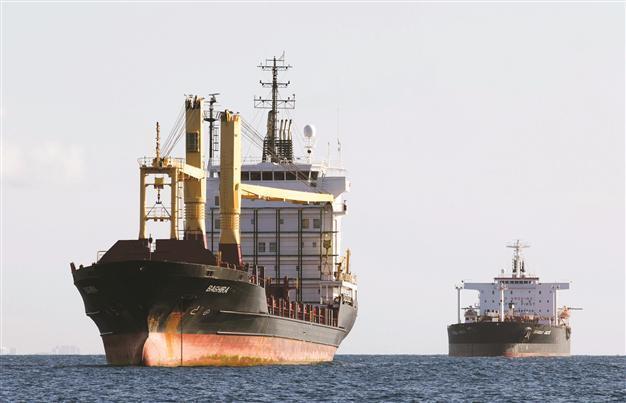Oil hits four-month high as Egypt stokes supply fears
LONDON - Reuters

Egypt is not a major producer of crude oil, but is home to the strategically-important Suez Canal and to the Sumed pipeline. AP photo
Brent oil prices climbed above $111 per barrel to a four-month high Aug.15 on fears that escalating violence in Egypt could affect the Suez Canal or spread in the Middle East, where some supplies are already disrupted.
Egypt’s government declared a state of emergency on Aug. 14 following deadly clashes between riot police and supporters of ousted President Mohamed Morsi.
Egypt is not a major producer of crude oil, but is home to the strategically-important Suez Canal and to the Sumed pipeline. Investors feared that unrest could choke supply routes or spill over into oil-exporting neighbors.
“Disruptions at the Suez Canal are unlikely, but markets never move on what’s likely. They move on fear. If people are fearful about supply, they buy even if the market is fundamentally well supplied,” Michael Hewson, an analyst at CMC Markets, said.
Turkish Energy Minister Taner Yıldız said on Aug. 14 the political turmoil in Egypt is already affecting the oil prices in Turkey.
“We see the results of the political instability in oil transportation. The incident in Libya had affected global oil prices by 10 percent and the instability emerged at this region is affecting oil prices in Turkey severely,” he said.
The oil prices have been already higher than other countries due to high taxes.
Routes openThe Suez Canal and Egyptian ports were operating normally despite the unrest gripping the Arab world’s most populous country, shipping sources said on Wednesday.
But a Muslim Brotherhood statement vowing to bring down “Egypt’s military coup” suggested that the standoff was unlikely to be resolved soon.
“It is very much geopolitically driven by the unrest in Egypt, rather than by the better economic outlook,” said Eugen Weinberg, analyst at Commerzbank.
“Even tourist areas in Egypt that were not affected by the revolution two years ago have been affected now. This has increased the perceived potential for supply disruption.”
In Libya, the deputy oil minister said output had fallen to 600,000 barrels per day (bpd) due to field problems.
The Ras Lanuf terminal remained shut after the state-run oil company had said it could not guarantee crude deliveries in September because of labour unrest at export terminals.
In Iraq, maintenance at its southern oil export hub is expected to slash supplies by 500,000 bpd in September.
Data on Aug. 14 showed the economies of Germany and France grew more quickly than expected in the second quarter, pulling the euro zone out of an 18-month recession.
